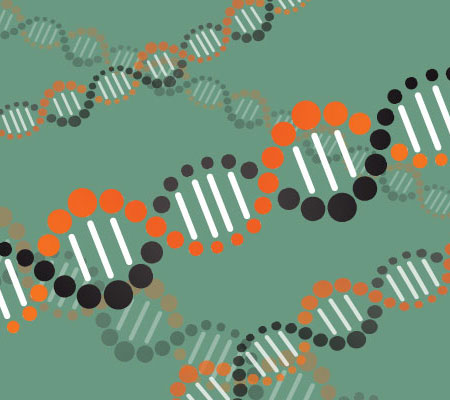
What can a genetic counselor do for you? Meet our team and request an appointment.
Learning family members have cancer or other serious illnesses may bring up questions about your risk.
You may be wondering if you’ll get the same type of cancer or if you should get genetic testing for a disease that has affected a few relatives.
“The terms ‘genetic’ and ‘hereditary’ are often used interchangeably when it comes to diseases, but they don’t mean exactly the same thing,” said Kyle Salsbery, a Marshfield Clinic Health System genetic counselor.
Genetic vs. hereditary vs. family history
Cancer is a genetic disease. That means it is caused by changes in our genes that control how cells function. Genetic changes can happen during someone’s lifetime, or they can be passed down from parents.
Some, but not all, genetic conditions are hereditary. Hereditary means they’re passed down from parents.
“If you have a hereditary disease, your parents may be carriers or affected by the disease as well,” Salsbery said.
Scientists can pinpoint several inherited genetic differences that predispose people to certain types of cancer. Breast, ovarian, colorectal and other cancers sometimes are hereditary.
Diseases that are common in your family may not be caused by inherited genetic changes. Salsbery calls these conditions familial. They’re often caused by multiple factors shared among families, like environment and lifestyle. There may be a genetic cause that isn’t a strong factor in developing the disease or that scientists haven’t figured out yet.
Sporadic diseases don’t have an inherited genetic component and aren’t common in your family.
Reasons to get genetic testing
Genetic testing isn’t always needed when you have a family history of cancer. Some examples of when genetic testing is recommended may include:
- Early onset of the disease: Diagnosis before age 50 is considered early onset for most cancers.
- Multiple generations affected by the same type of cancer.
- Cluster of rare cancers in the family.
Genetic testing for diseases that are very common in the general population or involve many risk factors may not be helpful, Salsbery said.
Practical steps after genetic testing
A test that shows a genetic difference that puts you at greater risk for a certain type of cancer doesn’t mean you’re definitely going to get sick or you can’t do anything about it. Maintaining a healthy lifestyle can reduce anyone’s risk of cancer even if they have a strong genetic risk factor.
If testing shows there isn’t a known genetic risk factor for a disease that’s common in your family, it’s still important to keep track of your family history.
“Families tend to share similar environments and lifestyles that can put them at greater risk for certain diseases,” Salsbery said. “You may need more screening than what’s recommended for the average person because of your family history.”






Leave a Reply